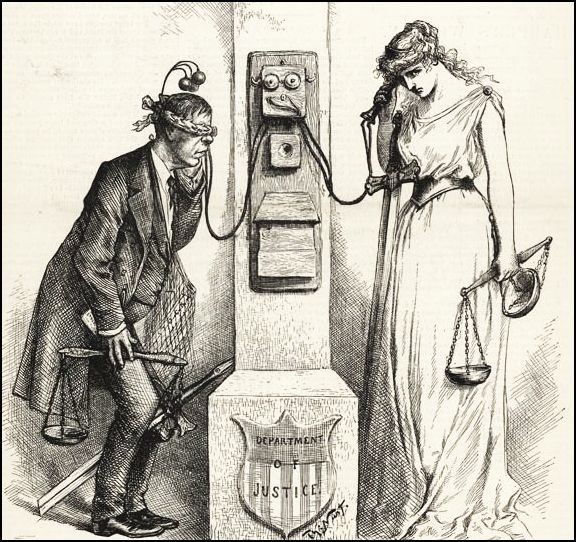Authors:
Historic Era: Era 6: The Development of the Industrial United States (1870-1900)
Historic Theme:
Subject:
February/March 2021 | Volume 66, Issue 2


Authors:
Historic Era: Era 6: The Development of the Industrial United States (1870-1900)
Historic Theme:
Subject:
February/March 2021 | Volume 66, Issue 2
Elected mayor of Buffalo in 1881, governor of New York in 1882, and president of the United States in 1884, Grover Cleveland owed his rapid rise in politics to his reputation for honesty, retrenchment, and administrative reform. In 1884 he ran as the clean candidate against James G. Blaine, the Republican nominee, who had an unsavory reputation.
Already known for the slogan “A Public Office Is a Public Trust,” Cleveland set his stamp on the campaign when, threatened by a scandal involving his illegitimate child, he instructed friends, “Whatever you do, tell the truth.”

Historians have differed over the nature of Cleveland’s contributions to the politics of the 1880s, but none has ever seriously questioned the President’s personal integrity or the essential honesty of his administration. As one writer has put it: “His distinguishing characteristic was plain honesty. . . . he made integrity the first virtue of political life.”
Only two incidents of importance involving charges of misconduct occurred during Cleveland’s first administration. The more egregious of the two was the Pan-Electric Telephone Company scandal. In 1885, in making up his cabinet, Cleveland selected as his attorney general Augustus H. Garland, a senator from Arkansas. Two years before, while a senator, Garland had been given shares to a nominal value of $500,000 in a new corporation named the Pan-Electric Telephone Company. At the same time he had been made an attorney for the company.
The Pan-Electric Company’s main asset was the Rogers telephone patent, a rival of the Bell telephone patent. The Rogers patent had value only if the Bell patent could be declared invalid.
When Garland took office as attorney general, he did not give up his stock, even though it was a potential embarrassment. Soon he was asked by the company to begin a government suit to test the validity of the Bell patent. Properly, he refused. But a few weeks later, while he was in Arkansas on vacation, the solicitor general, John Goode, decided to file the suit. The decision aroused considerable public outcry. Critics investigated Garland’s stockholdings, revealing that he owned about one-tenth of all the stock in the company. Should the Bell patent be invalidated, the Attorney General’s stock would be worth millions of dollars.
Alerted to the situation, President Cleveland ordered the solicitor general to halt the suit. He also instructed L. Q. C. Lamar, the Secretary of the Interior, to look into the whole matter, and he called on Garland for an explanation. On October 8, 1885,